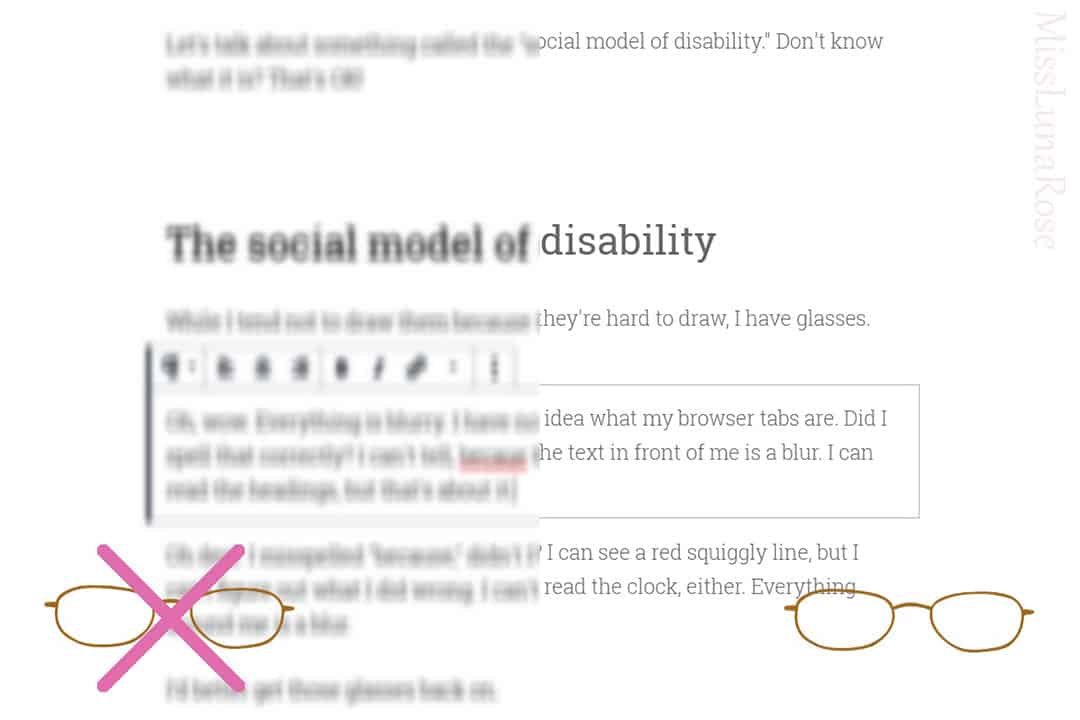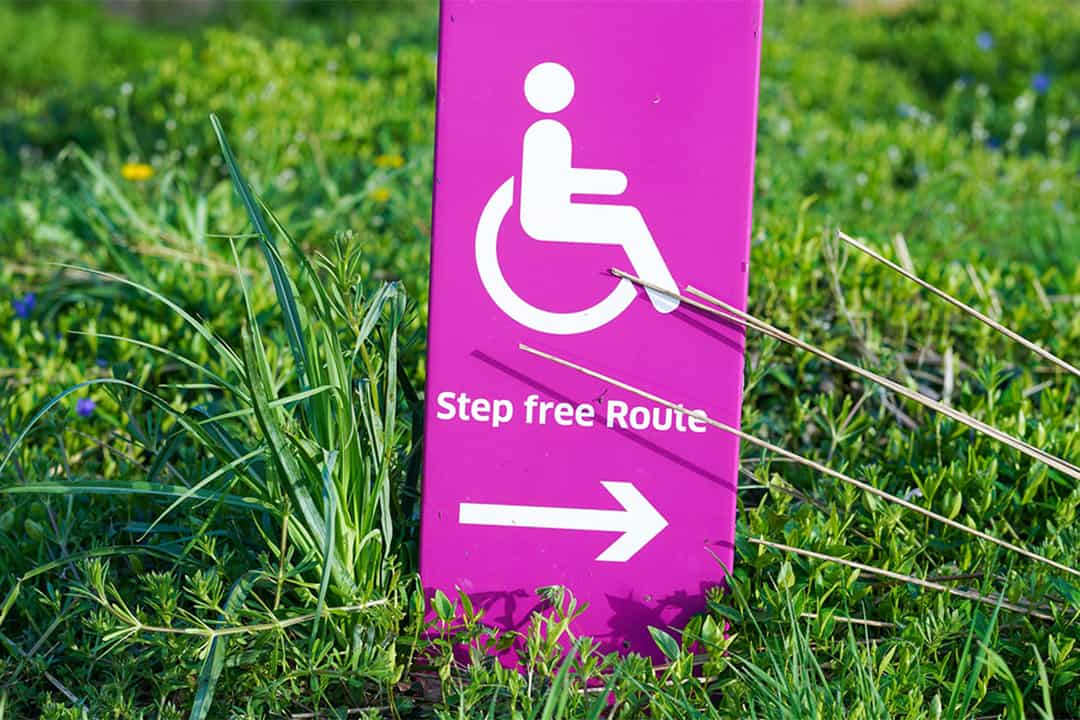The social model of disability and preventing mental health problems
What do you think of when the word disability comes to mind?
There are many different ways of thinking about disability, you are probably familiar with the medical model which sees disability as something a person “has”.
The social model, however, acknowledges that disability is also largely shaped by our environment. To give a simple example, if you are one of the 74% of British people that wear glasses or contact lenses think about how your life would be without these – imagine that you lived in a time before they were available or if they now became too expensive to buy. You might not be able to drive, or watch a movie comfortably, or read a book with as much ease; this would affect many people’s lives.

Glasses and contact lenses prevent a lot of people from being disabled by their vision impairment. In a similar way, many wheelchair users can use their chairs to travel independently but it’s only when they face a set of stairs that they are disabled. Their mobility impairment, their legs being unable to walk, doesn’t necessarily disable them because a wheelchair can allow them to do a lot of the things that non-disabled people can do, but not having wheelchair accessible ramps is a problem.
The point of the social model of disability is that disabled people have impairments but these are not the cause of their disability – an inaccessible society is. When we look at disability in this way we stop seeing disabled people with pity, or seeing their impairments as their only limit. It calls us to take responsibility for the things that make disabled people’s lives harder, and cause them mental and emotional distress.

People with learning disabilities are more likely to experience mental health problems. People with physical disabilities like cancer, diabetes, asthma and high blood pressure are also at a greater risk of having mental health problems like depression, anxiety and PTSD. A world which is more compassionate and empowering of disabled people can help to reduce the emotional stress they experience.
Remember that when we speak about society disabling this doesn’t just mean physical barriers, it means attitudinal barriers too. For example, not allowing disabled children to participate in sports even if they are capable of joining in, or children not playing with a disabled child in their class because they are scared of them, or strangers pushing a wheelchair user’s chair without consent and thus not showing them the same respect they would an able-bodied adult.
Some common things that can cause disabled people distress is when they are babied and pitied. Disability does not make someone less of a human, many can be capable of making well-informed decisions, of using their own chair without help etc. Don’t assume that you know what is best for a disabled person, treat them with respect by speaking to them and understanding that they have firsthand experience of their disability and therefore, they can make the best choices for them.

“The Prophet (ﷺ) frowned and turned away. Because there came to him the blind man, [interrupting]. But what would make you perceive, [O Muhammad], that perhaps he might be purified or be reminded and the remembrance would benefit him? As for he who thinks himself without need, to him you give attention. And not upon you [is any blame] if he will not be purified. But as for he who came to you striving [for knowledge] while he fears [Allah], from him you are distracted.”
[Quran 80:1-10]
Remember that the Prophet (ﷺ) frowned and turned away from a blind man then was reminded that he shouldn’t have done this in Surah ‘Abasa . The blind man couldn’t see his frown but Allah noted it and it’s a moment that’s been written about in the Quran as a reminder to us to be especially sensitive and kind when interacting with anyone, even those with disabilities. Remember that they are already facing challenges because of their impairments, but these impairments don’t have to mean feeling lonely or excluded from society.
Some very simple things we can start doing now can have a big impact for example putting image descriptions on our social media posts can help blind people or visually impaired people who use screen readers to understand what the images are of, or we can learn just a couple of words in sign language and make someone’s day, or very topically we can demand that our workplaces/schools/universities continuing making remote working and lecture recordings an option for people who need it.
What does disability mean to you?




